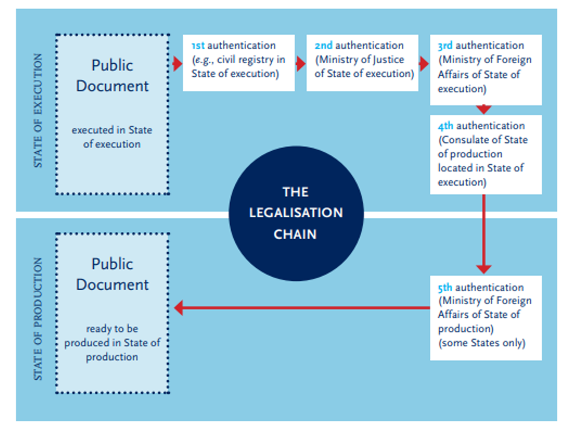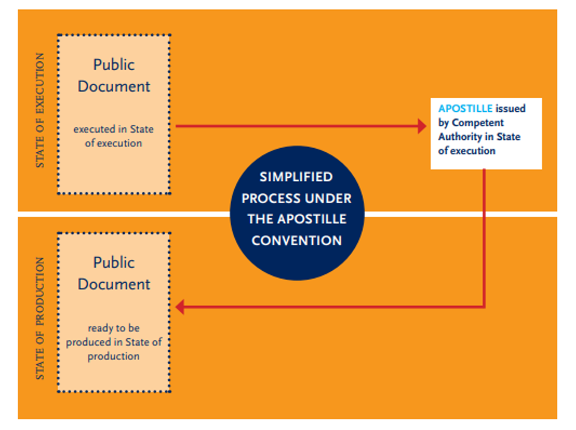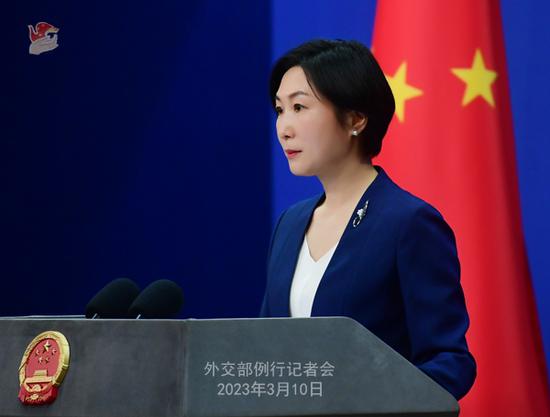Authenticating Documents for China Made Easier: China Joins the Apostille Convention
Shanghai (Moore MS Advisory) - How to get documents authenticated for China used to be a major headache for foreign companies and individuals wishing to do business in China. However, on March 8, 2023 the Chinese ambassador to the Netherlands, Tan Jian, officially submitted China’s instrument of accession to the Hague Convention of 5 October 1961 Abolishing the Requirement of Legalization for Foreign Public Documents, also known as the Apostille Convention.
The Apostille Convention will enter into force in China on November 7th, 2023, and will earmark a significant easing of the methods to notarize documents for China and from China.
Spokeswoman Mao Ning of the Chinese Foreign Ministry noted that the main purpose for China joining the Apostille Convention is to simplify procedures for the use of public documents abroad and facilitate international trade and people-to-people exchanges and is further in line with efforts of the Chinese authorities to open up and re-engage with foreign business and individuals in a post-pandemic era.
What does the Apostille Convention Do?
The objective of the Apostille Convention is to simply the authentication of public documents for use abroad. Where the Apostille Convention Applies, it abolishes the traditional and lengthy legalization process, replacing it with a single formality where an authentication certificate is issued by an appointed Competent Authority in the State where a public document was executed, and such a certificate is called an Apostille.
The Apostille Convention applies if and when all of the following conditions are fulfilled:
The State in which the document was issued and the State in which the document is used are both party to the Apostille Convention;
The law of the State in which the document was issued considers it to be a ‘public document’;
The State in which the document is to be used requires an Apostille in order to recognize it as a foreign public document.
Each Contracting State is required to designate one or more authorities that are competent to issue Apostilles and each State is free to determine the identity and quantity of the competent authorities.
In most States a public document may be apostilled directly by a Competent Authority but in certain States the public documents may first need to be certified by one or more separate authorities (e.g. a professional or regional authentication body).
What Documents Can Be Authenticated via the Apostille Convention?
The Apostille Convention only applies to ‘public documents’ and whether or not a document is considered a public document is determined by the law of the State in which the document was executed. In general, the Apostille Convention deems the following documents to be public documents:
- Documents emanating form an authority or an official connected with a court or tribunal, including those emanating from a public prosecutor, a clerk of a court or a process-server;
- Administrative documents;
- Notarial acts; and
- Official certificates which are placed on documents by persons in their private capacity, such as certificates recording the registration of a document or the fact that it was in existence on a certain date and official and notarial authentications of signatures.
Is China Part of the Apostille Convention?
Following the entering of China’s accession to the Apostille Convention on November 7th, 2023, it will formally be part of the Apostille Convention in addition to the Hong Kong SAR and Macao SAR.
How to Notarize Documents for China?
The Apostille Convention greatly simplifies the process to authenticate documents for China, as it significantly reduces time and costs to complete the authentication process. The best way to show the difference is to examine the traditional legalization process among States which have not ascended to the Apostille Convention as represented in the below diagram:

Whereas compared to the traditional legalization process depicted above, the simplified process under the Apostille Convention could involve as little as a single Competent Authority in the State in which a document is executed as you can see form the diagram below:

How can Foreign Companies and Individuals Benefit From China’s Ascension to the Apostille Convention?
As mentioned above, the reasons for China to join the Apostille Convention are twofold, namely it allows Chinese citizens overseas easier recognition of academic degrees, driver’s licenses, health certificates etc., whereas it helps foreign business and individuals doing business in China as they no longer need to seek consular legalization for commercial documents.
In practice, this means that the process to establish a subsidiary in Mainland China may be significantly reduced, as certification of public documents for incorporation of an entity in China may take only a few days to complete compared to several weeks or months earlier.
In addition, it could facilitate individual’s application for visas to China and it could ease trade as those companies exporting would no longer need to get commercial documents certified by the Chinese embassy or consulate in the State in which a document is executed. It still remains to be seen what documents China will consider as public documents, as only those will fall under the Apostille Convention.
Our Observations
Whereas China’s ascension to the Apostille Convention is one of several signals of China’s initiative to re-engage with the foreign (business) community and opening up, it is important to note how China will further implement the Apostille Convention.
Notably we are looking forward to understanding which documents China will consider as public documents and how the Chinese authorities will ensure universal acceptance of an Apostille provided in another State across all provinces and regions of Mainland China.
Nevertheless, we view this as a greatly welcomed sign of the Chinese authority’s intent on further facilitating foreign investment into the country.
After operating in China for more than a decade, we understand the various needs a business may have. Get in touch with one of experts at Moore – MS Advisory to better understand the Chinese business landscape and to make doing business in China easy.



